I’ll be honest after 3,5 years blogging and being a fact-based junkie these days, there isn’t much I read online that is news to me. With the exception of personal accounts that challenge my beliefs/hair knowledge or my hairstylist ‘gurus’ on Instagram my interest in what comes up in the natural hair sphere is only sparkled when there is some evidence-based or expert related information. It can be about anything, as long as it’s hair related I’m on it. So when I saw a headline stating ‘expert warns, you should not leave your hair wet’ I was intrigued. Could this be a case of actual valid information or just another case of misleading information in hair care?
I wondered if hygral fatigue could be the reason behind this warning? In case you don’t know, hygral fatigue is a hair condition that happens when the hair is frequently wet and loses its elasticity (like a rubber band). This happens because when it accepts water in the hair expands lifting its cuticle layers and then contracts when that same water evaporates.
It’s this repeated motion (expasion<->contraction) that causes the hair to lose its elasticity. But this hair condition can also lead to damage to the cuticle layer (split ends, holes, shipped or cracked cuticle), tangled hair, frizzy hair, consequent damage to the cortex, breakage… You can see how serious it can be for curly girls, right?!
Anyway, when I read the title I thought ‘What do you mean to not leave my hair wet? I wet my hair when I wash it and I air dry!‘.
What was this expert saying?
I was a bit puzzled. I mean, I know that at some level damage to hair is always happening as I just explained with hygral fatigue or even because of water quality (hard water). This is why I say it’s important to deep condition and not give your hair just moisture, but also nutrition and protein and let’s not forget about clarifying your hair to remove all those water minerals. But it couldn’t be that simple, could it?!
So I ended up reading this post citing Dr Tim Moore as an expert. Well, when I finished, which didn’t take long as it was a short article, I was wasn’t very impressed. I was irritated and slightly angry at the misleading information.
But first, let me give the juice of the article.
Misleading Information & Hair Damage
While the article starts out with Dr Moore claiming you (we) shouldn’t ‘leave your hair wet for any extended length of time’ and rightly explaining how the cuticle layers of the hair lift when wet, it then goes off to identify some of the dangers of having wet hair: (1) water pressure on hair can eventually break its (lifted) cuticle layers and create split ends, (2) hair is half as strong when wet and (3) washing removes the hair’s natural hair protection (sebum) which increases the potential for hair damage.
The premise of this article and Dr Moore’s, it seems, is that once the hair is washed and removed of sebum it shouldn’t be left wet for too long since it continues to swell lifting the cuticles layers and increasing the potential for hair damage (i.e. split ends and breakage). To prevent this from happening, Dr Moore suggests that all excess water should be removed from the hair and to use a “hairdryer on a low temperature to get rid of the water, before eventually changing it to the user’s ideal temperature as it continues to dry”.
My emotional reaction
It was this last bit in the article that triggered an emotional reaction in me. It was not so much about the validity of the facts being given to the reader. As a natural hair blogger who has been blogging for 3,5 years (5,5 of being natural) and who likes to rummage for science-based information, the facts in this ‘news’ was pretty basic to me (and, no, I’m not gloating).
My reaction was more to do with the half-truths, the way in which the information was weaved to offer the use of a hairdryer as the solution to prevent damage to the hair when it is wet. My reaction may be more comprehensible to you if you consider that Dr Moore works with GHD, a manufacturer of hair care products/tools that leads the market for straightening irons and had, at the moment of these statements, just launched a new hair product tool.
I feared that to a newcomer it could lead to a disastrous result. Just like my daughter, who is 16 and brought my attention to this article, acknowledged this article without a second thought so can other people who have little or no knowledge of hair and hair care practices.
There is no doubt that, as Dr Moore explains, when hair is wet it is more fragile. As it takes in water, the cortex of the hair swells and forces the cuticle layers to lift which, when manipulating the hair or when strands rub against each other, can indeed cause breakage and/or split ends. However, things are not so cut and dry as presented.
Let me explain…
Autopsy Of The Article
Hair Washing & Damage
In the article, Dr More states that the removal of sebum can leave the hair unprotected and vulnerable to damage. True, but what the article doesn’t say is that this is also the reason why a conditioning product (i.e. rinse out conditioner or deep conditioner) should be used after shampooing – to help ‘flatten’ the cuticle layers, facilitate detangling and manipulation and replenish the hair of what it was taken (hydration, moisture, lubrication/sebum-like protection).
It could be that the message is only directed at people with straight hair who are known to wash their hair several times a week and/or not use conditioner because it weighs their down (thus, leaving the cuticle layer of the hair exposed and possibly causing more damage to the hair shaft). However, just as it is important to inform people reading the article of possible hair damage it is also important to inform them of good hair care practices.
Furthermore, this study (1) claims that provided that a regular conditioner is used after a well-formulated shampoo no damage is to be expected even if you wash frequently. It is, of course, important to know that if you need to wash your hair frequently you should adjust the strength of your cleanser/shampoo so you don’t stip your hair. (Here, read this post with more about surfactants and shampoo. Your hair cleanser should be adjusted to your lifestyle.)
Swelling of Hair Shaft & Damage
Also, the article mentions that when the hair wet it swells and is more fragile, and if left wet the hair can be damaged. To me, this induces readers to think that even when it is no longer in contact with water hair continues to swell and to avoid damage (breakage) from this one needs to use a hairdryer to dry the hair and stop swelling. Though it is true the hair swells when taking water in, the idea that this continues to happen for a long time is not true.
As this study (2) shows, there is a limit to how much the hair can take in. As stated in the study, after a while (approximately 100 seconds) water intake/swelling plateaus. However, it is interesting to note that results showed that Caucasian hair showed the most swelling and African hair had the least swelling. (I have an idea of why that is, but I’ll leave that for another post. If you know it, leave a comment below. 😉 )
Use of Hairdryer to Avoid Damage
Finally, as for the need to use a hairdryer to avoid damage, according to this study (3), which looks at the effects of water on heat-styling damage, cycles of wetting and blow drying the hair can result in cracks to the cuticle layer of the hair due to rapid dehydration.
Though it could be said that the article suggests using the hairdryer in a low setting it also doesn’t specify the use of a cold setting. Plus, most people only ever use a hairdryer because of the heat setting and since the purpose of Dr Moore’s recommendation was to speed the drying process to avoid damage, a low heat temperature setting (which, according to him, should be increased to user ideal temperature) is implied in the text.
So, yeah, using a hairdryer may not be the perfect solution.
Conclusion
The fact is, the information in the article isn’t necessarily wrong, however, it is misleading. People reading this article could get the idea that blow drying their wet hair is less damaging than air drying since all this information is being given by a doctor, but that isn’t exactly true.
In my opinion, the article doesn’t give the full picture of the pros and cons of what is being introduced to the reader. It should be more complete and accurate as to not induce people to include damaging hair care practices in their hair routines. Truth be told, the publication isn’t exactly geared towards hair or beauty, it is more embracing in terms of topics. However, a fair warning should be given to potential risks.
So, when all is said and done can you use a hairdryer to dry your hair? Yes. There are two ways you can use it safely: (1) use it in the cold setting or (2) use it sporadically in a low heat setting. Though some curly girls out there diffuse their hair frequently I do believe that frequent use, even on a low heat setting, can lead to damage in the long run. So monitor your hair and don’t forget about your deep conditioning sessions as a tool to prevent/’repair’ damage.
What hair woes have you fallen into because of misleading information?
Featured Image: by Element5 Digital on Unsplash
(1) P. D’Souza & S. Rathi. (2015). Shampoo and Conditioners: What a Dermatologist Should Know? Indian Journal Of Dermatology, 60(3): 248–254.
(2) A. Franbourg, P. Hallegot, F. Baltenneck, C. Toutain, & F. Leroy. ( 2003). Current research on ethnic hair. J. Am. Acad. Dermatol, 48: S115-9.
(3) P. Christian, N. Winsey, M.Whatmough, & P. A. Cornwell. (2011). The effects of water on heat-styling damage. J. Cosmet. Sci., 62, 15–27.

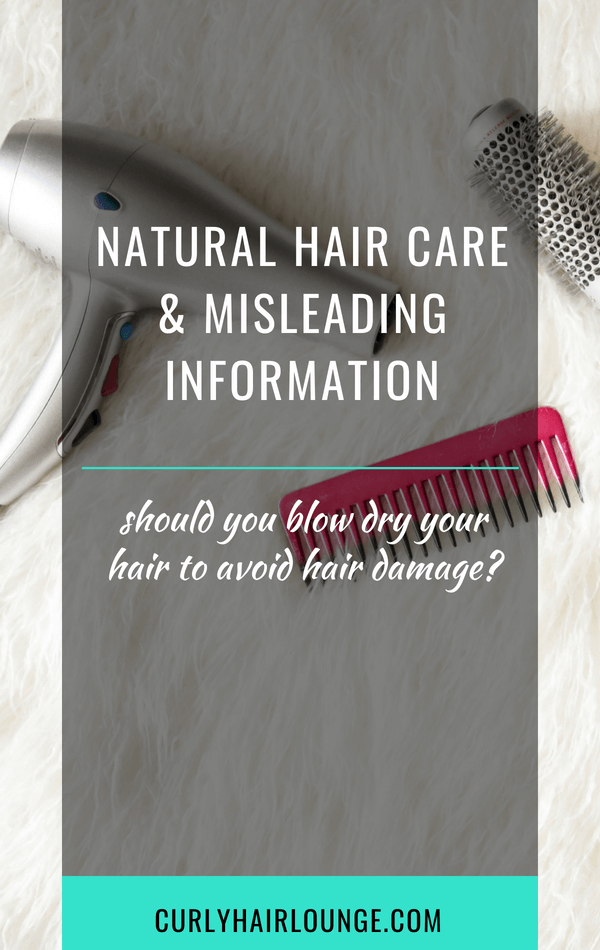
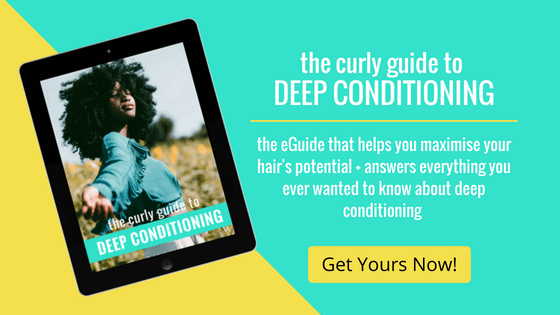
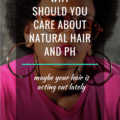
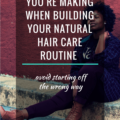
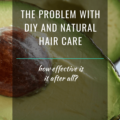
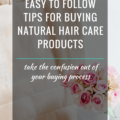
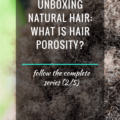
4 thoughts on “Natural Hair Care And Misleading Information”
You had me at cut and dry ?
Hey Colette, glad you enjoyed this post. 😀
I’m still unclear. I wet and go every day. I put in a leave in condition and then my gel and leave my hair to air dry. I do not touch it until its completely 100% dry (because it will cause frizz). So is it okay to air dry as long as I’m not touching it or doing anything that would cause damage or is it simply the drying process that causes the damage and hygral fatigue?
You can air dry all you want, Julie. I’m just trying to say that you don’t NEED to always blowdry after washing your hair as the article I mention is suggesting. But if you do, however, wet your hair every day you run the risk of causing hygral fatigue.